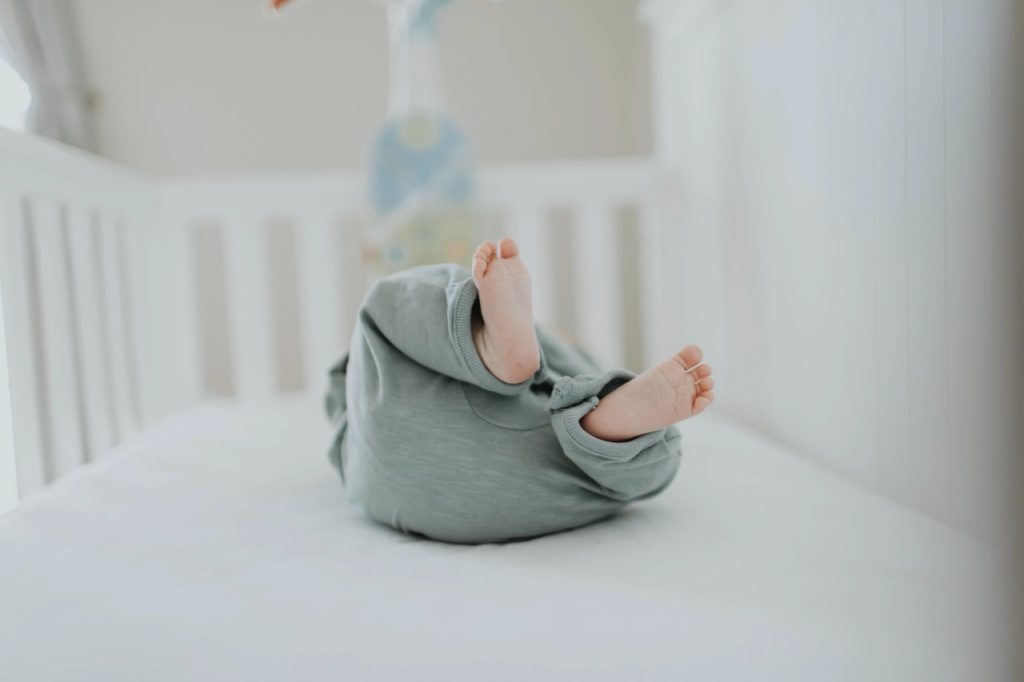Bringing your newborn baby home from the hospital is exciting and scary all at the same time. Next to discovering you were pregnant, safely transporting your little one from the hospital to his or her new home is a major life event. New parents have a lot of anxiety about bringing their babies home for the first time. Many “what ifs” go through their minds as they worry whether they are prepared to care for this fragile human being without the 24-hour-assistance they received from nurses and doctors at the hospital. Getting your baby home from the hospital is not as scary as you may think with a little advanced planning and the right equipment for the job. Here are some of the baby essentials you will need.
Baby essential #1: A Welcome Home Outfit
Choosing the outfit your little one will wear home for this momentous occasion is one of the least stressful parts of planning. Sometimes new moms pack the outfit long before the baby arrives, placing it in an overnight bag next to her own clothes for the hospital. Others wait and have their partners or family members choose an outfit and bring it to the hospital later. Whichever you choose, it is important to not overdress the baby for the trip home.
A good rule to follow is to dress your baby as you would dress yourself. For instance, if you bring your little one home on a hot summer day, putting a knitted cap on his or her head will likely cause discomfort. In warm weather, a onesie and light cotton pants are appropriate. If you bring your baby home during colder months, dress him or her in footie pajamas and a hat, and cover with a warm blanket.
Baby essential #2: A Proper Child Safety Seat
Even more important than an appropriate outfit for your little one is a proper child safety seat. It is never safe to transport your baby in a vehicle without a car seat. New Mexico law requires all children up to age 7 ride in a child safety seat. For newborns, you must use an infant-only seat that is rear-facing. The American Academy of Pediatrics recommends infants and toddlers ride rear-facing until age 2. Never place an infant car seat in the front seat of your vehicle, even when rear-facing. Most vehicles have passenger-side airbags that can seriously injury your baby during a crash.
Parents who need assistance purchasing a car seat have options. If you are enrolled in a government program like Medicaid, SNAP, TANF, or WIC, you are eligible to receive a free car seat. You also can reach out to the New Mexico Child Safety Seat Distribution Program for help with a car seat. The program not only provides free car seats to families but also teaches them how to safely install them in vehicles.

Baby essential #3: An appropriate baby bed
One of the safest places for your newborn to sleep is in your room, but not in bed with you. Co-sleeping is dangerous for newborns. Tired parents easily can roll over onto their babies and suffocate them. Whether you choose a crib or a bassinet, make sure it includes a soft mattress and is free from bedding and toys that can cause suffocation. If you buy a used crib or bassinet, check to ensure it was not recalled for safety or other issues.
Baby essential #4: Diapers and diapering supplies
Newborns basically have three jobs: eat, sleep, and poop. New parents can find themselves going through a lot of diapers, wipes, and other diapering supplies during the first months of their babies’ lives. Since your newborn baby’s weight can fluctuate from one day to the next, you may want to keep newborn and size-one disposable diapers on hand. Other diapering necessities include diaper wipes and baby ointment or cream to prevent diaper rash. Some parents also prefer cornstarch powder, but it is optional.
Baby essential #5: Clothing and blankets
Babies go through a lot of clothes because they spit up and have diaper blowouts regularly. Make sure you have several outfits, bibs, and blankets on hand to quickly change out when these accidents happen. Some other recommendations include:
- Nightgowns for use until the umbilical cord falls off to prevent rubbing.
- Short- and long-sleeved onesies.
- One-piece sleepers with zippers.
- Scratch mittens to keep baby from scratching his or her face.
- Receiving blankets.
Baby essential #6: Bathing supplies
Baby bathtubs are not necessary for giving baby a bath, but most parents find them convenient. You also should have baby washcloths, hooded towels, and baby-safe cleansing products. Baby shampoo and lotion are gentle enough to get baby clean while protecting his or her delicate skin.
Baby essential #7: Medical care products
It is scary to think you may need medical care products for your little one, but parents must be prepared just in case. Here are the things you should include in your infant medical care product kit:
- Baby scissors or nail clippers for trimming nails.
- Bulb syringe to suction mucous out from the nose if baby becomes congested.
- Eyedropper or syringe for administering medication like anti-gas drops or acetaminophen.
- Thermometer for checking temperature.
Enjoying your new baby
Bringing your baby home from the hospital should be a memorable occasion. When you plan for that special day by including these seven baby essentials, you will have everything you need to keep baby comfortable, happy, and safe.
Need help finding resources for your new parenting adventure? Care Net Pregnancy Center can help. Contact us today to speak with a caring member of our staff who is happy to assist.
